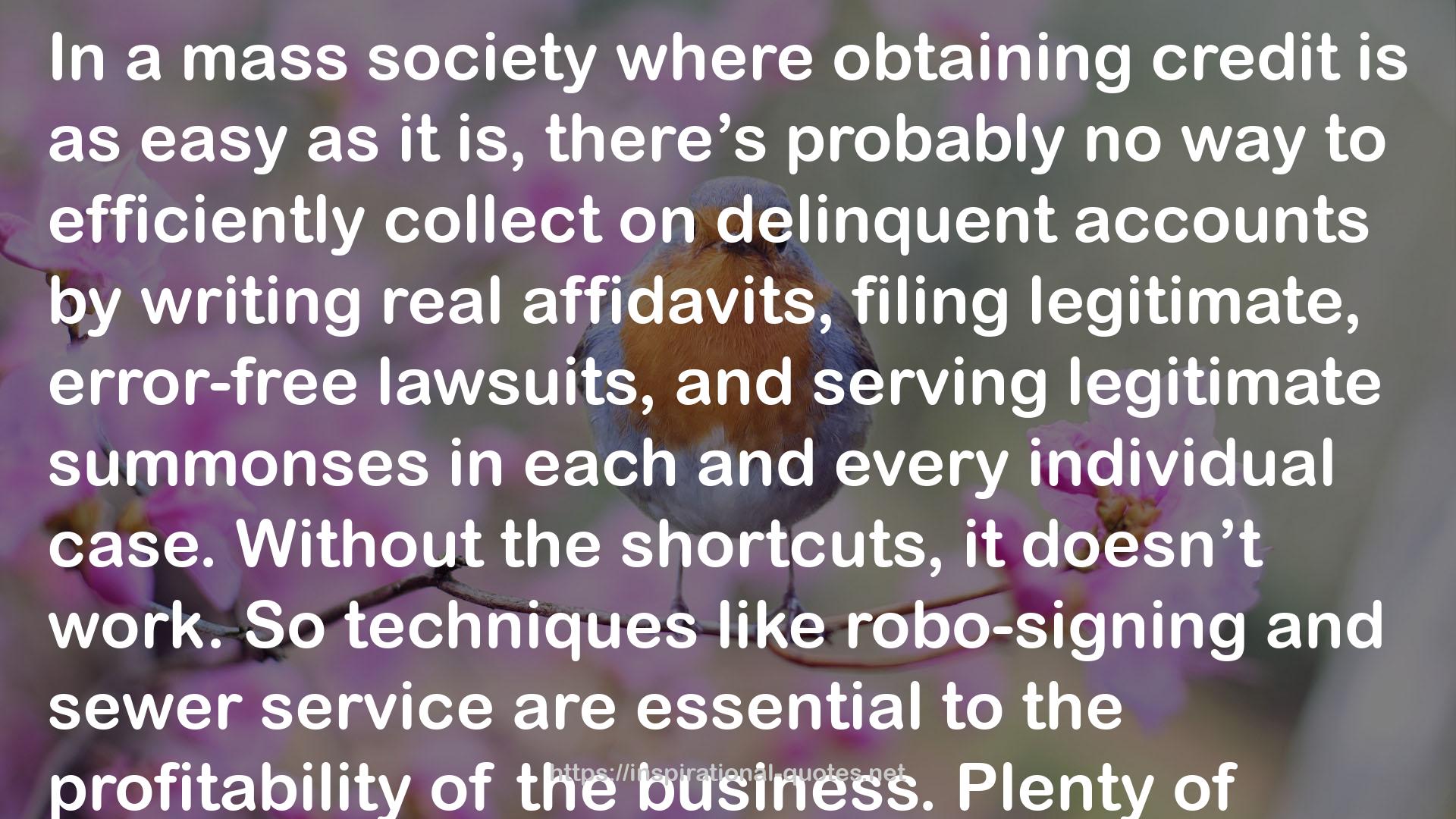" In a mass society where obtaining credit is as easy as it is, there’s probably no way to efficiently collect on delinquent accounts by writing real affidavits, filing legitimate, error-free lawsuits, and serving legitimate summonses in each and every individual case. Without the shortcuts, it doesn’t work. So techniques like robo-signing and sewer service are essential to the profitability of the business. Plenty of people—consumers and merchants both—are probably glad that so much credit is available, but they don’t realize that systematic fraud is part of what makes it available. Legally, there’s absolutely no difference between a woman on welfare who falsely declares that her boyfriend no longer lives in the home and a bank that uses a robo-signer to cook up a document swearing that he has kept regular records of your credit card account. But morally and politically, they’re worlds apart. When the state brings a fraud case against a welfare mom, it brings it with disgust, with rage, because in addition to committing the legal crime, she’s committed the political crime of being needy and an eyesore. Banks commit the legal crime of fraud wholesale; they do so out in the open, have entire departments committed to it, and have employees who’ve spent years literally doing nothing but commit, over and over again, the same legal crime that some welfare mothers go to jail for doing once. But they’re not charged, because there’s no political crime. The system is not disgusted by the organized, mechanized search for profit. It’s more like it’s impressed by it. "
― Matt Taibbi , The Divide: American Injustice in the Age of the Wealth Gap
